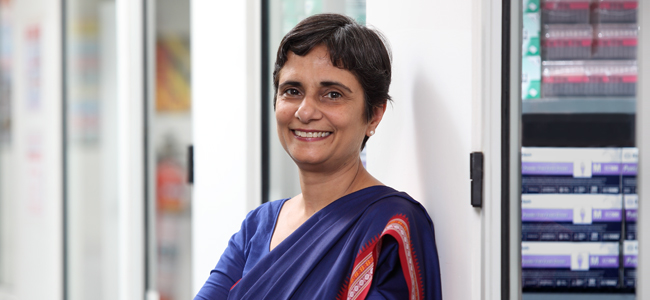The ICMR study dismissed Covid-19 vaccines having any link with sudden heart attacks and deaths in youth.

Dr Gagandeep Kang, microbiologist, vaccine expert, and adjunct Professor at CMC Vellore. (Supplied)
An Indian Council for Medical Research (ICMR) study that refuted the argument that Covid-19 vaccines were responsible for sudden heart attacks and deaths is under scrutiny by both medical experts and ordinary people. While some lauded the medical research body for the study and the methodology employed, many others questioned the research’s methodology.
Against this backdrop, South First spoke to renowned microbiologist Dr Gangandeep Kang to learn her take on the study.
Q. There have been many discussions about the ICMR’s recent study on people dropping dead, sudden heart attacks, and their alleged link to Covid-19 vaccination. What’s your take on this study?
A. It’s very difficult to answer this question after the fact that there is incomplete data. If you are living in a country where everybody has impeccable clinical records, where you know what happened to people at different points in time — when did they get vaccinated, when did they fall ill, what illness they had, what their lifestyles are — you would be able to draw much more meaningful conclusions.
Q. How do you view the ICMR’s approach and findings in this context?
A. Right now, I think the ICMR has done a good job by looking into it. If there was a really strong signal, the likelihood is that the ICMR would have found it. If there was a strong correlation between vaccinations and health events, it would likely have been detected. However, uncovering rare associations is difficult with the available data.
Q. Many people are not convinced with the ICMR findings and the methodology employed.
A. I wouldn’t treat anything as the last word. So, if you have doubts about it, try and do a better job. If you have relatively incomplete data, you try to draw inferences as best as you can, but it is very hard to do. My answer to all the people who ask the question is to do a better job themselves. It’s very easy to point fingers and say that they didn’t do well, but show me what else people should have looked at.
Q. So, you suggest the data limitations have significantly impacted the study’s conclusions?
A. Yes, exactly. The challenge with rare events is that they are, by definition, rare. Detecting a relationship in such cases is very hard. You try to draw the best inferences from what you have, but it’s always going to be a complex task.

Jul 26, 2024

Jul 26, 2024

Jul 26, 2024

Jul 26, 2024

Jul 26, 2024

Jul 26, 2024